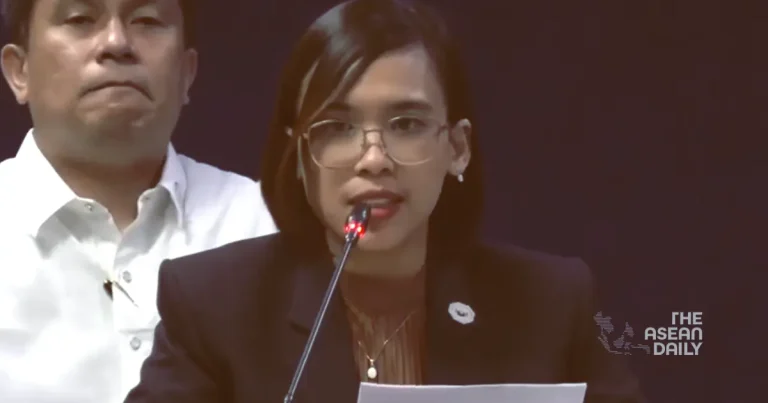11-7-2024 (MANILA) A Philippine Navy officer and recent law graduate has found herself at the centre of a complex web of corporate fraud and identity theft, potentially linked to the controversial Philippine Offshore Gaming Operators (POGOs). The case has shed light on the far-reaching consequences of seemingly innocuous actions and the sophisticated methods employed by criminal enterprises.
Lieutenant Jessa Mendoza, testifying before the Senate Committee on Women and Children on Wednesday, recounted a harrowing tale that began with a simple act of familial trust in 2016. Mendoza had lent her Taxpayer Identification Number (TIN) card to a cousin, thinking little of it at the time. “Naturally, out of respect, trust, and confidence, I allowed her to borrow my ID,” Mendoza explained to the committee.
Little did she know that this gesture would spiral into a nightmarish legal quagmire eight years later. Mendoza has discovered that her identity has been used to register her as an incorporator in a staggering 193 companies, many with “foreign-sounding names” and some confirmed as POGOs.
The gravity of the situation became apparent to Mendoza in April 2023 when she received a Letter of Authority from the Bureau of Internal Revenue (BIR) regarding tax deficiencies linked to a company called Xin Wanhao Online Game Technology, Inc. Initially dismissing it as a clerical error, Mendoza’s concerns grew when she received another such letter five months later, this time concerning Handy International Prime Carry, Inc.
The situation escalated dramatically in April 2024 when Mendoza was served with a subpoena from the Office of the City Prosecutor of Makati. She was asked to submit a counter-affidavit regarding violations committed by Serart Construction Corp., another entity with which she had no association. The naval officer found herself indicted and was forced to pay over 100,000 Philippine pesos to avoid incarceration.
Seeking clarity, Mendoza approached the Securities and Exchange Commission (SEC), which revealed the shocking extent of the identity theft. “To my utter disbelief, my name, TIN, and signature had been used to incorporate no fewer than 193 corporations,” Mendoza told the Senate committee, her voice breaking with emotion.
Senator Risa Hontiveros, leading the probe into illegal POGOs, identified two such operators among the companies linked to Mendoza’s stolen identity. These firms have been flagged for alleged criminal activities, highlighting the gravity of the situation.
Mendoza’s ordeal is not isolated. She revealed that her cousin, uncle, and another relative in the United States have also fallen victim to similar identity theft schemes, their names appearing on incorporation papers for various companies.
This case has brought to light the insidious methods employed by criminal enterprises, particularly those associated with POGOs, to obfuscate their operations. “The dangers posed by POGOs are now being felt by ordinary Filipinos,” Senator Hontiveros remarked. “They are using the names of innocent individuals to conceal their criminal activities.”




